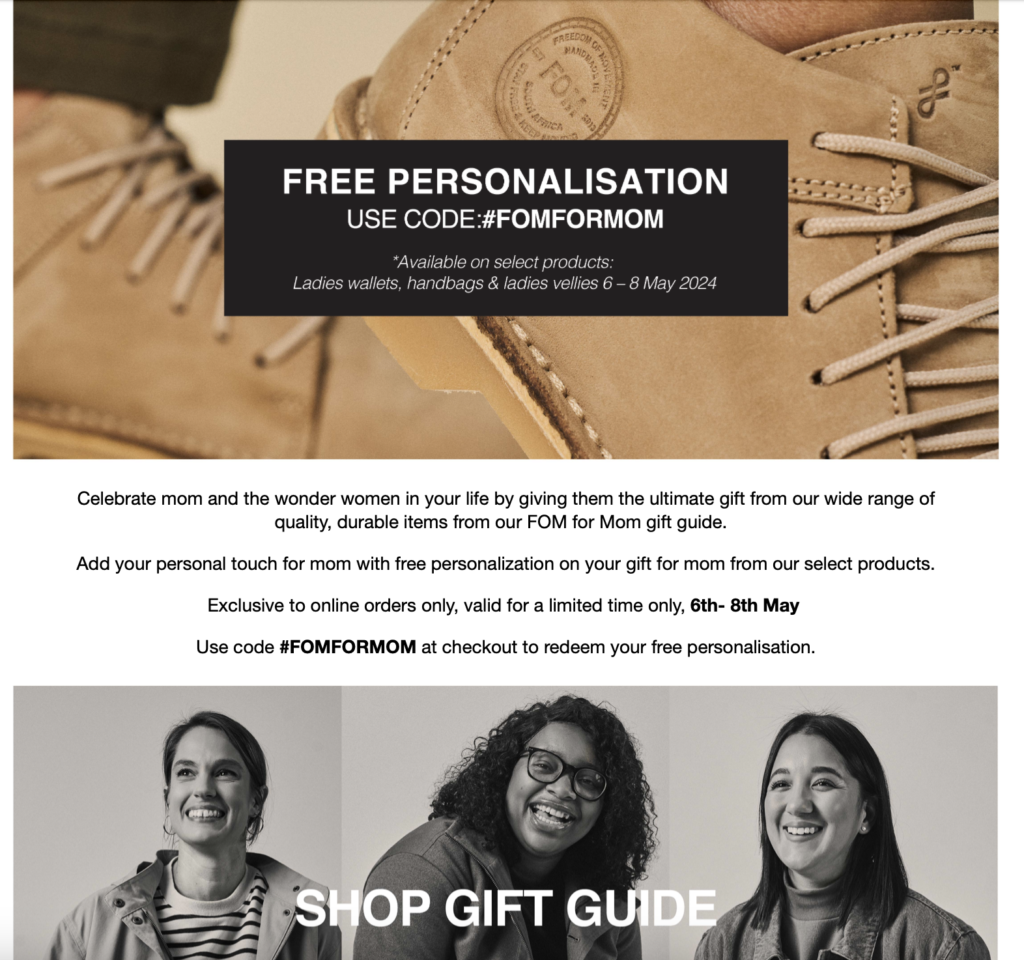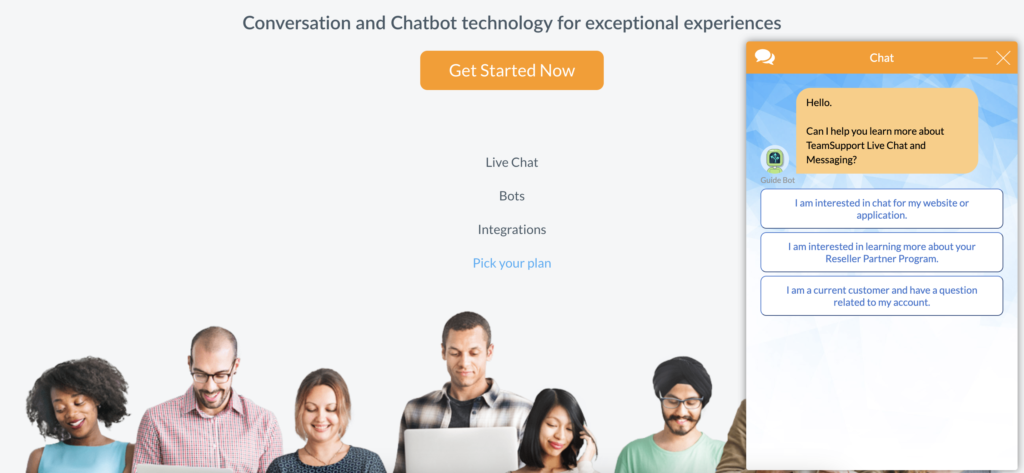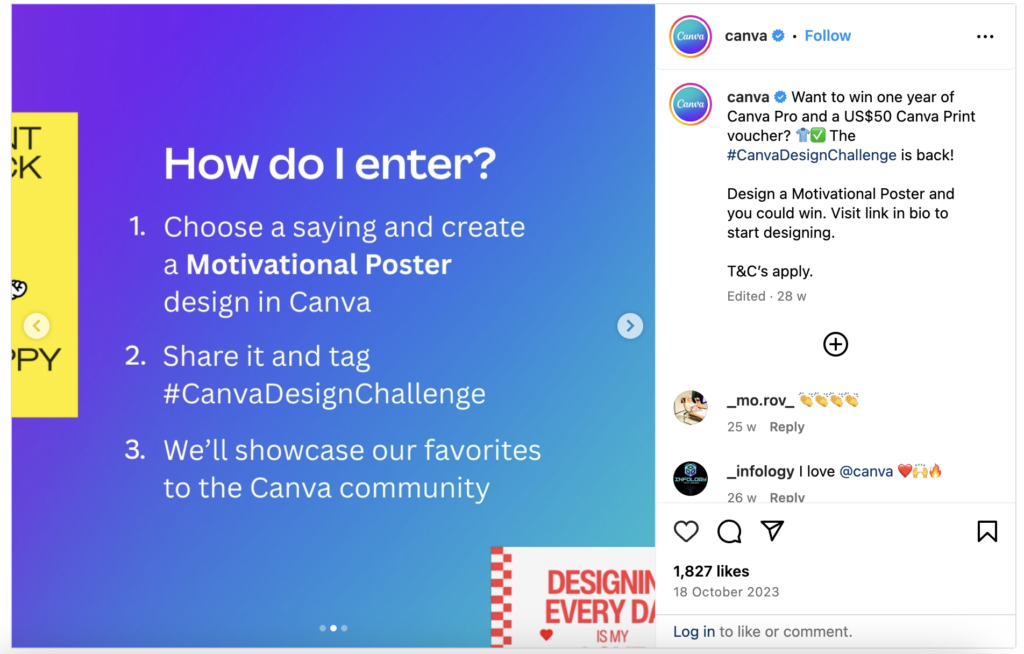
Traditionally business-to-business (B2B) and business-to-consumer (B2C) marketing were treated as two fundamentally different marketing approaches.
For some reason, B2B marketing has a reputation of being fact-based, formal, somewhat distant and cold.
While B2C marketing is considered to be emotional, entertaining and fun.
But here’s the thing:
Even though the two approaches might have started differently, they’re now converging on near-identical objectives.
They both focus on selling and they both do it by focusing on the customer’s needs.
B2C marketing is now concerned with conversion rates and leads as a way of measuring the success of marketing campaigns while B2B focuses on buyer personas, emotional messaging and branding to better connect with their audience.
All marketing is now B2H – business to human.
B2B vs B2C: The Meanings
B2B (business-to-business) refers to transactions between businesses. Think companies selling office supplies to other companies. B2C (business-to-consumer) means transactions between a business and the individual buyers. For example, when you open a business account to purchase bulk office supplies, you engage in a classic B2B transaction.
Understanding the difference between B2B and B2C is crucial in the world of business. Here’s a more in-depth breakdown of these terms and their key distinctions:
B2B stands for Business-to-Business. This refers to companies that sell products or services to other businesses. These products or services are often used to create the final product the end consumer will buy. Examples of B2B companies include:
- A software company that sells project management tools to marketing agencies.
- A manufacturer that supplies raw materials to clothing companies.
- A marketing agency that provides social media management services to restaurants.
B2C stands for Business-to-Consumer. This refers to companies that sell products or services directly to individual consumers. These are the final products that people use in their everyday lives. Examples of B2C companies include:
- An online clothing retailer selling clothes to individual customers.
- A streaming service offering movie subscriptions to viewers.
- A coffee shop selling lattes to customers.
A Quick Comparison Table For B2B vs B2C
| B2B |
B2C
|
|
| Customers | Other businesses |
Individual consumers
|
| Products/Services | Often used to create final products |
Final products for individual use
|
| Decision-making | Typically involves a longer sales cycle with multiple decision-makers |
Shorter sales cycle with a single decision-maker (the consumer)
|
| Marketing Focus | Builds relationships and focuses on ROI (Return on Investment) |
Creates brand awareness and emotional connections
|
Why are B2B and B2C Marketing Not Relevant Anymore?
B2B and B2C marketing have lost their original meaning because all companies are now in the business of getting attention.
As a customer of any type of business, you are bombarded with thousands of marketing messages every day.
The company that can get your attention wins.
It’s simply not humanly possible to process all of those thousands of marketing messages. Only the ones that stick out and speak to our needs get a chance to be considered.
It’s all about attention – the scarcest resource today!
Hence, integrating super-personalised marketing into your strategy is a way for your business to say:
“I’m listening. I know what you need, and I can help you to get it.”
We’ve developed a unique approach to persona research that allows you to run super-personalised marketing campaigns at scale.
You’re either a B2C or B2B business. We can help you to understand your audiences and build a beautiful website that actually converts.
Interested in knowing more about how exactly we build personas at Digivate? Download our FREE step-by-step guide here.
All Our Buying Decisions Are Emotional, Not Logical
All of our decisions are subconscious – we are just not aware of it.
All humans are made of the same neurons that trigger emotions and drive us to behave in a certain way.
No one can switch off emotions when they go to work and switch them back on when they arrive home. You can try to mute them, but you will always be unconsciously driven by them.
Scientific research about the human brain shows that 95% of decisions are driven by subconscious urges, the biggest of which is emotion, which we then justify with logic.
The decision to buy is made subconsciously, and these subconscious decisions are based on a deeply empirical mental processing system that follows a logic of its own.
Our subconscious decision to buy is then communicated to the conscious mind via an emotion. The conscious mind then searches for rational reasons, and that’s how we complete the circle: We justify our emotional signals to buy with logical reasons.
It’s human nature.
Both B2B and B2C Customers Use the Same Channels
Another reason B2B and B2C marketing is more similar than different is because of the omnichannel environment we live in.
Everyone hangs out on Facebook, Instagram, Twitter and LinkedIn all day, regardless of whether it’s for work or personal reasons.
This is why both B2B and B2C businesses are using social media to target their customers in the same place.
Marketing is becoming more platform-specific than strictly B2B or B2C.
This means that if your target customer is a ‘marketing manager’ on Facebook and you want to get their attention about your B2B product, your messaging will need to be fun and emotional as opposed to dry and fact-based because that’s what the person browsing Facebook expects and that is what your competition is doing.
Platform-specific marketing considers a person’s state of mind on that particular platform as well as the competition (i.e what are other B2B and B2C companies doing on that channel to get people’s attention).
What is B2H?
B2H stands for Business-to-Human. It’s a marketing approach that shifts the focus from targeting a generic “business” to recognising the human beings behind those businesses. This means acknowledging that even in B2B transactions, decisions are ultimately made by individuals with emotions, needs, and preferences.

6 Benefits of B2H Marketing
- Increased customer engagement: B2H marketing fosters a two-way conversation. By creating content and interactions that resonate with people on a personal level, you can encourage them to participate, share feedback, and become more invested in your brand.
- Improved brand loyalty: When customers feel valued and understood as individuals, they’re more likely to develop a deeper connection with your brand. This loyalty translates into repeat business, positive word-of-mouth recommendations, and a stronger brand reputation.
- Stronger relationships with decision-makers: B2H marketing focuses on building trust and rapport with the people who hold the buying power. This can be achieved by understanding their pain points, offering personalised solutions, and fostering genuine communication that goes beyond just a sales pitch.
- Enhanced employee engagement: A B2H approach can extend internally as well. When employees feel valued and connected to the company’s mission on a human level, they’re more likely to be motivated, productive, and become brand advocates themselves. Presenting unique crystal paperweights or a certificate of recognition as gifts can further strengthen this connection, making employees feel appreciated and valued.
- Humanises complex products/services: B2H marketing can help simplify and explain complex B2B products or services by focusing on how they benefit the individual user and their specific needs. This can make B2B products more relatable and easier to understand.
- Improved competitive advantage: In a crowded B2B marketplace, companies that prioritise the human connection can stand out. By demonstrating that they care about the people behind the businesses, they can gain a competitive edge in attracting and retaining customers.

How To Implement B2H Marketing
The B2H approach requires a shift in mindset and tactics. Here’s how your business can implement a B2H marketing strategy:
1. Personalisation is Key:
- Go beyond generic marketing messages. Use customer data and analytics to understand individual needs and interests.
- Tailor your content (website copy, emails, social media posts) to address specific pain points and offer personalised solutions.
- Leverage marketing automation tools to personalise communication at scale.
- Example: Instead of a generic email blast, segment your audience and send targeted emails addressing their specific industry challenges, upcoming events/holidays or product interests.

2. The Power of Storytelling:
- People connect with stories. Use storytelling to showcase the human impact of your product or service.
- Feature customer testimonials and case studies highlighting how your solutions have helped real people achieve their goals.
- Create videos or blog posts that showcase the human side of your company and the people who work there.
- Example: Develop a video series featuring customer interviews where they share their experiences and how your product has positively impacted their business.
3. Build Lasting Relationships:
- B2H marketing is about fostering long-term relationships with your customers.
- Prioritise open communication and actively listen to customer feedback using customer feedback platforms.
- Engage in conversations on social media and respond to inquiries promptly.
- Host webinars or online events to provide valuable information and create a space for interaction.
- Example: Implement a live chat feature on your website to allow for real-time customer interaction and build trust.

4. Embrace Transparency:
- Be open and honest about your company’s values, mission, and practices.
- Showcase your company culture and the team behind the product.
- Acknowledge challenges and setbacks, and demonstrate how you’re working to improve.
- Example: Publish a blog post outlining your company’s core values and how they guide your business decisions.
5. Leverage Social Media for Authentic Engagement:
- Social media platforms offer a powerful tool for connecting with your audience on a human level.
- Share engaging content beyond just product promotions.
- Use humour, behind-the-scenes glimpses, and industry insights to create a relatable and authentic brand voice.
- Encourage user-generated content and actively participate in conversations.
- Example: Run a social media contest where customers share their experiences using your product.

By implementing these strategies, you can move beyond traditional B2B marketing and embrace a human-centric approach that fosters stronger relationships, builds brand loyalty, and drives business success.
Summary
No matter who you’re marketing to, it’s crucial to always remind yourself that you are simply human marketing to another human and in order to market to humans, you need to get their attention first.
Attention is the new currency of any business.
You can only get a person’s attention if you know something special about them. Or in other words, something that makes them human.
The B2H marketing approach isn’t just a trend; it’s a fundamental shift in how businesses connect with their customers. Building genuine human connections is more crucial than ever in today’s competitive landscape, where information is readily available and customer expectations are high.
By prioritising the human element, B2H marketing allows you to:
- Cut through the noise: Stand out from competitors with a more personal and relatable approach.
- Build trust and loyalty: Foster deeper connections with customers, leading to repeat business and positive word-of-mouth marketing.
- Drive results: Increase engagement, improve conversion rates, and ultimately achieve your business goals.
By embracing B2H marketing, you’re investing in the future of your business. It’s a strategic shift that allows you to connect with your audience on a deeper level, build stronger relationships, and achieve long-term success.



